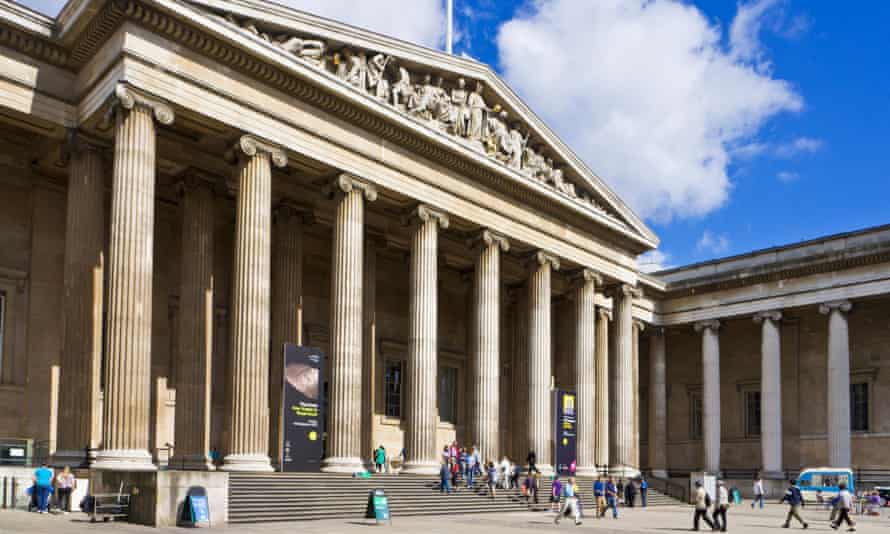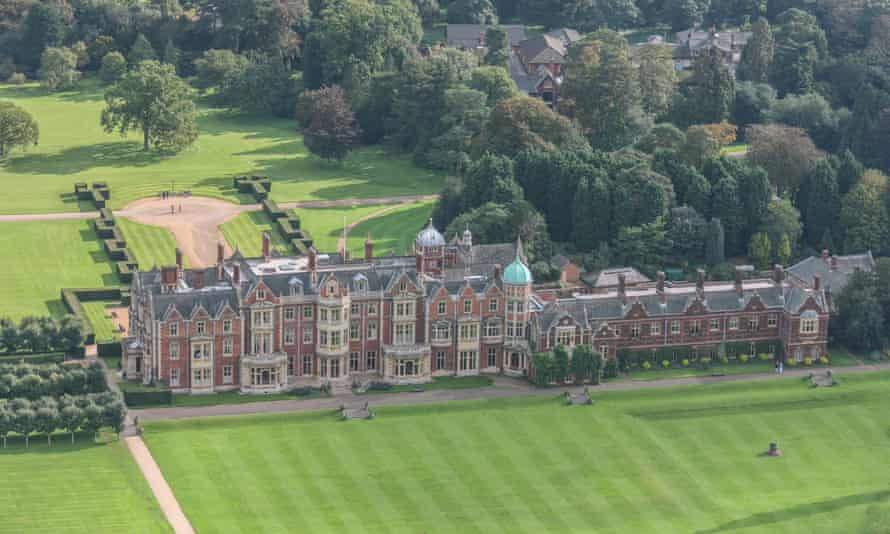Closing Costs for a 2 Family House in Queens
More than than i,000 laws accept been vetted by the Queen or Prince Charles through a secretive process before they were approved past the Uk's elected members of parliament, the Guardian has established.
The huge number of laws subject to royal vetting comprehend matters ranging from justice, social security, pensions, race relations and nutrient policy through to obscure rules on machine parking charges and hovercraft.
They included draft laws that affected the Queen's personal property such equally her private estates in Balmoral and Sandringham, and potentially anything deemed to affect her personally.
The Guardian has compiled a database of at least i,062 parliamentary bills that have been subjected to Queen'southward consent, stretching from the beginning of Elizabeth Two's reign through to the nowadays twenty-four hour period.
The database illustrates that the opaque process of Queen's consent has been exercised far more extensively than was previously believed.
Under the procedure, government ministers privately notify the Queen of clauses in typhoon parliamentary bills and ask for her consent to debate them.
Equally role of a series investigating the utilize of the consent procedure, the Guardian has published documents from the National Athenaeum that reveal the Queen has on occasions used the procedure to privately antechamber the authorities.
Quick Guide What is Queen'southward consent?
Evidence
Queen'due south consent is a picayune-known procedure whereby the government asks the monarch's permission for parliament to be able to debate laws that bear on her. Dissimilar purple assent, which is a formality that takes place at the end of the process of drafting a bill, Queen's consent takes place before parliament is permitted to debate the legislation.
Consent has to be sought for whatsoever legislation affecting either the royal prerogative – cardinal powers of state, such as the power to declare state of war – or the assets of the crown, such as the royal palaces. Buckingham Palace says the process besides covers assets that the monarch owns privately, such equally the estates of Sandringham and Balmoral.
If parliamentary lawyers decide that a bill requires consent, a government minister writes to the Queen formally requesting her permission for parliament to debate it. A copy of the nib is sent to the Queen's private lawyers, who take xiv days to consider it and to advise her.
If the Queen grants her consent, parliament can contend the legislation and the process is formally signified in Hansard, the record of parliamentary debates. If the Queen withholds consent, the beak cannot go on and parliament is in effect banned from debating information technology.
The royal household claims consent has only e'er been withheld on the advice of government ministers.
The investigation uncovered show suggesting that she used the procedure to persuade government ministers to change a 1970s transparency law in guild to conceal her private wealth from the public.
The documents also show that on other occasions the monarch's advisers demanded exclusions from proposed laws relating to road prophylactic and state policy that appeared to affect her estates, and pressed for government policy on historic sites to be contradistinct.

The database of one,062 laws relates to legislation that the Queen vetted under consent rules, and it is non known on which occasions she also lobbied for changes to typhoon legislation. The Guardian has uncovered evidence of lobbying for changes to at least iv draft laws, but it is possible she interfered with many more than.
When asked by the Guardian, the Queen's representatives refused to say how many times she had requested alterations to legislation since she came to the throne in 1952.
The royals describe the consent procedure as "a long-established convention that the Queen is asked by parliament to provide consent … for the debating of bills which would touch the prerogative or interests of the crown".
The database compiled by the Guardian reveals the vast swathe of typhoon UK constabulary that ministers have decided to send to the palace for consideration.
Some of the bills the Queen reviewed before they were passed by parliament relate to wealth or taxation. One of the richest families in Britain, with the monarch's property investments exempt from inheritance tax and collections of fine art and jewellery built upwardly over centuries, the Windsors are notoriously guarded virtually their finances.

Members of the Windsor family tin can have their volition sealed from the public, unlike any other family in Britain, ensuring an unmatched level of secrecy effectually their private wealth. No confirmed figure of the Windsor family'due south wealth exists, though estimates have placed it at hundreds of millions of pounds.
In 2014, for example, the Queen and the heir to the throne screened the inheritance and trustees' powers bill. 2 years earlier she vetted the trusts (upper-case letter and income) bill. Trusts are legal arrangements oft used by wealthy families to protect their assets from both tax and public scrutiny.
She has besides screened bills covering whole swathes of regime policymaking. At least eleven bills governing the railways have been vetted by the Queen, sometimes relating to the land endemic past the royal estates.
In 2013 the Queen gave her consent to the parliamentary bill to build the Loftier Speed 2 rail line between London and Birmingham. Send ministers had notified the palace that the bill affected the "interests of the crown" as the department needed to acquire 21 plots of country owned by the crown estate during the construction of the line.
At to the lowest degree 10 bills relating to housing policy have been subject to Queen's consent, as have five relating to laws on pensions, seven relating to the NHS and at least two concerning animate being welfare. The government gave the Queen an exemption in a 2006 deed to foreclose the mistreatment of animals, stopping inspectors from entering her individual estates.
Some of the bills subjected to Queen'southward consent are remarkably obscure and ostensibly have little relevance to the monarchy, raising questions well-nigh why the Windsors were asked to vet the bills. They include a 1963 pecker relating to the British Museum, a 1986 bill on salmon, and the 2019 parking (lawmaking of exercise) pecker to regulate the behaviour of private motorcar-clamping firms.

Dr Adam Tucker, a specialist in constitutional law at Liverpool University, said the breadth of laws made to undergo the Queen's consent process was startling.
"A lot of these bills are not distinctively about the crown, or mainly about the crown, or obviously about the crown in whatever way," he said. "And however they manifestly still have some content which drags them into the procedure.
"Seeing the sheer range, in this relentless list form, really drives home the sheer breadth of things that the process captures."
In other instances, a connection to the crown's fiscal interests is plain, such as a 1988 beak affecting the duchy of Lancaster, the private estate that gives the Queen a multimillion-pound income.
Buckingham Palace confirmed that the mechanism encompassed draft laws that bear on the Queen's private interests, such as her private estates, besides every bit annihilation that affects the Queen personally, whether as an individual or every bit a land owner or employer.

A spokesperson for the Queen said: "Whether Queen'south consent is required is decided past parliament, independently from the imperial household, in matters that would affect crown interests, including personal property and personal interests of the monarch.
"If consent is required, draft legislation is, by convention, put to the sovereign to grant solely on advice of ministers and equally a matter of public tape."
She added: "Queen'south consent is a parliamentary process, with the role of sovereign purely formal. Consent is ever granted by the monarch where requested by government. Any assertion that the sovereign has blocked legislation is just wrong."
The Cabinet Office said: "Queen'south consent is a longstanding convention and a requirement of the parliamentary process. Consent is routinely sought by the authorities and agreed by the monarch every bit a matter of course."
A picayune-questioned rule
Many of the laws appear to relate to matters of the majestic prerogative, the powers of country that are formally vested in the monarch merely are exercised by the government.
The fact that the consent procedure takes place is briefly noted in the parliamentary tape. In the Eatables, a government minister nods when asked by the Speaker, while in the Lords a government minister volition read a rote passage of text.
Politicians infrequently question the process. I of the rare occasions was in 2015 when the Labour peer Lord Berkeley asked why the Queen's consent was required for the enterprise bill after the rote passage had been read out.
Lord Taylor, the and then government primary whip in the Lords, replied that it was "a courtesy which Her Majesty extends to the house before we consider the third reading of a bill. It is non normal to discuss in particular what the interests are."
whitakertagathe93.blogspot.com
Source: https://www.theguardian.com/uk-news/2021/feb/08/royals-vetted-more-than-1000-laws-via-queens-consent
0 Response to "Closing Costs for a 2 Family House in Queens"
Post a Comment